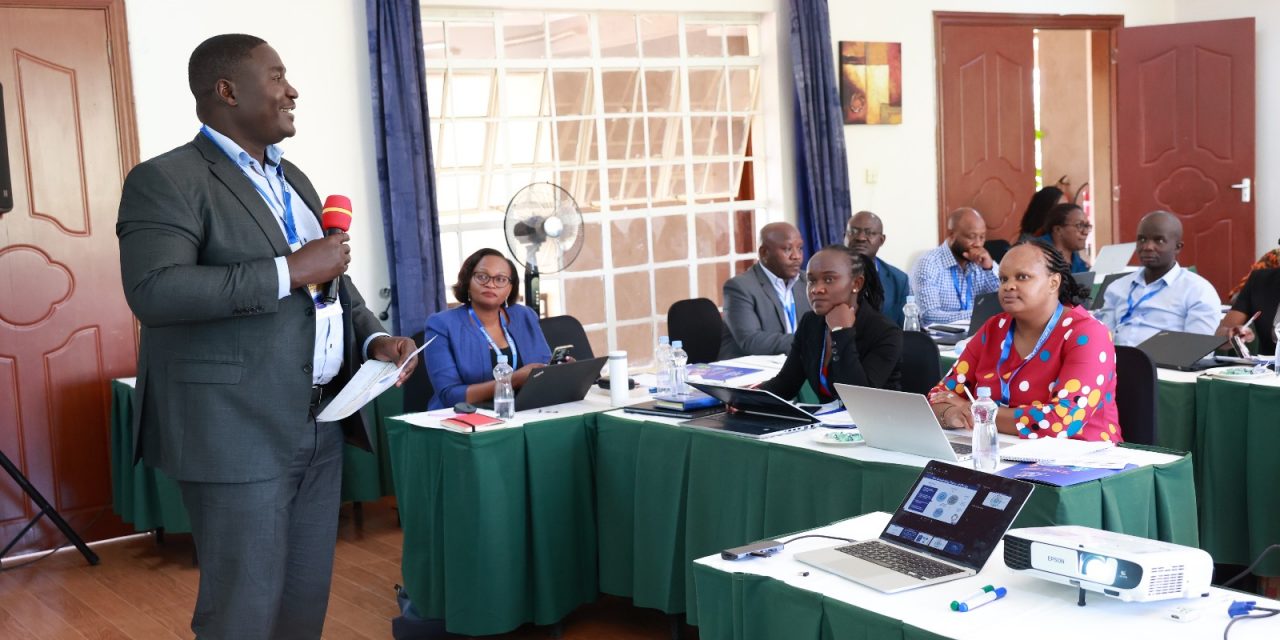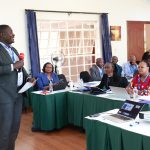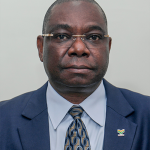Share the post "AFIDEP, PPDARO and HENNET organizes a smart advocacy capacity strengthening workshop on increasing domestic health financing in Kenya"
By Samwel Doe Ouma
As Kenya transitions from donor dependency on key sub sector of its health systems there is a need to leverage on key decision makers who can influence domestic resources mobilization for sustainability of the gains made over time especially on programs that focusses on primary healthcare (PHC), girls’ and women’s health.
According Dr. Elizabeth Wangia, Director of Health Financing at the Ministry of Health, the government commitments of achievement of universal healthcare (UHC), determination to improve healthcare outcomes and provide quality health services to its citizens may be hampered by donors reconsidering their approach to providing health aid to countries that are viewed as becoming increasingly capable of self-financing their own development.
“The government acknowledges the need to accelerate progress towards sustainable domestic financing and is working on sustainability plans to guide on what will be done when the donor funds are gone.”
She said that the government through stakeholder engagements will leverage on domestic resource mobilization as a critical step on the path out of aid dependence.
“We need to look at county specific action plans, maximize collection of tobacco fund, road levy health tax, implement integrated care which has the potential to sustainably reduce duplication of services, capture conditions within the benefits packages so that everyone with a card can access services and urge all counties to pass Facility Improvement Fund (FIF) bill to ensure that facilities retain the resources that they collect and priorities spending towards their need.”
Dr. Wangia said that there is a need to improve health data that will inform the decision makers to understand the level of donor dependency to help us know whether or not the country is likely to fill the funding gap.
Dr Wangia was speaking at a SMART Advocacy training in implementing the Advance Domestic Health Financing (ADHF) project that seeks to contribute to increasing domestic investments in health and promoting efficient utilization of health budgets. The training was cohosted by African Institute for Development Policy (AFIDEP), Partners in Population and development (PPD)Africa Regional Office (ARO), Health NGOs Network (HENNET) and attended by civil society organizations (CSOs) from Nyandarua, Laikipia, Tana River, Taita Taveta, Turkana and Nairobi Counties, and the media.
The training was organized under the Advance Domestic Health Financing project, a project that aims at enhancing domestic political will, resource investments, adaptation and implementation of evidence-informed policies, and effective utilization of available health resources focusing on Primary Health Care (PHC), girls’ and women’s health.
The workshop was held in Machakos county from 26th-29th Sept 2023 with an aim of strengthening advocacy and accountability for increased domestic financing for health and improved efficiency among Civil Society Organizations (CSOs).
The domestic health financing advocacy workshop deliberated on concrete actions that Kenya needs to take to optimize policies, increased financing and visibility of domestic finance issues in the media that will help improve domestic financing for health, which is critical for accelerating progress towards the realization of universal health coverage (UHC). At the end of the training,8 SMART advocacy strategies were developed to engage decision makers in addressing health financing gaps in the target counties.
As Countries move from low-to middle income status as Kenya is now categorized, they are perceived as increasingly capable of financing their own health systems. According to experts’ other key challenges that constrain achievement of UHC and SDGs includes inadequate domestic financing for health programs, including inefficient utilization and weak public financial management of allocated funds for health. Even when our governments committed and signed commitments including the Abuja Declaration and the Africa Leadership Meeting (ALM) geared to increasing funding for health, implementation of these commitments remains patchy.
According to Dr Jackson Otieno, Senior Research and Policy Analyst at AFIDEP, in addition to low investments in health and inefficient use of resources at the county level, Kenya’s proportion of health expenditure on curative care is higher than on promotive and preventive care and a high level of out-of-pocket expenditure; as well as low rates of utilization of health budgets at national level and at county level.
He said that there is an increased need to increase local capacity for advocacy partners to shape new landscape for sustainability, advocate for prudent use of available resources and reduce over reliance of donors to fund healthcare.
While Mary Mwami manger advance domestic health financing project (AFIDEP) explained to participants sources of county health financing which includes equitable share, facility improvement funds, conditional grants, direct donor funding, health insurance subsidy program and support from activities by private sector.
She said that, however, the law requires that for every financial year, the equitable share of the revenue raised nationally and allocated to county governments shall be not less than fifteen per cent of all revenue collected by the national government, the health revenue share is still at 11.5 percent.
“There is a need to sustain advocacy for domestic health financing, find other innovative ways to raise funds and strengthen data generation analysis and use in decision making and reforms that will create public, private partnerships investments in the health sector,” Mary Said.
She recommended fastracking of passing of facility improvement fund (FIF) in all counties and ensure that revenue leakages are dealt with in terms of streamlining and automation of procurement processes.
While Mr. Patrick Mugirwa, Program Manager PPD ARO and the entire team of facilitators equipped participants with knowledge and skills to design, implement and monitor health financing advocacy strategies using SMART advocacy approach.
Mr. Mugirwa highlighted the need to identify the right decision makers in Advocacy who can influence the outcomes of the advocacy objective directly, determining the SMART ask and creating an advocacy workplan.









